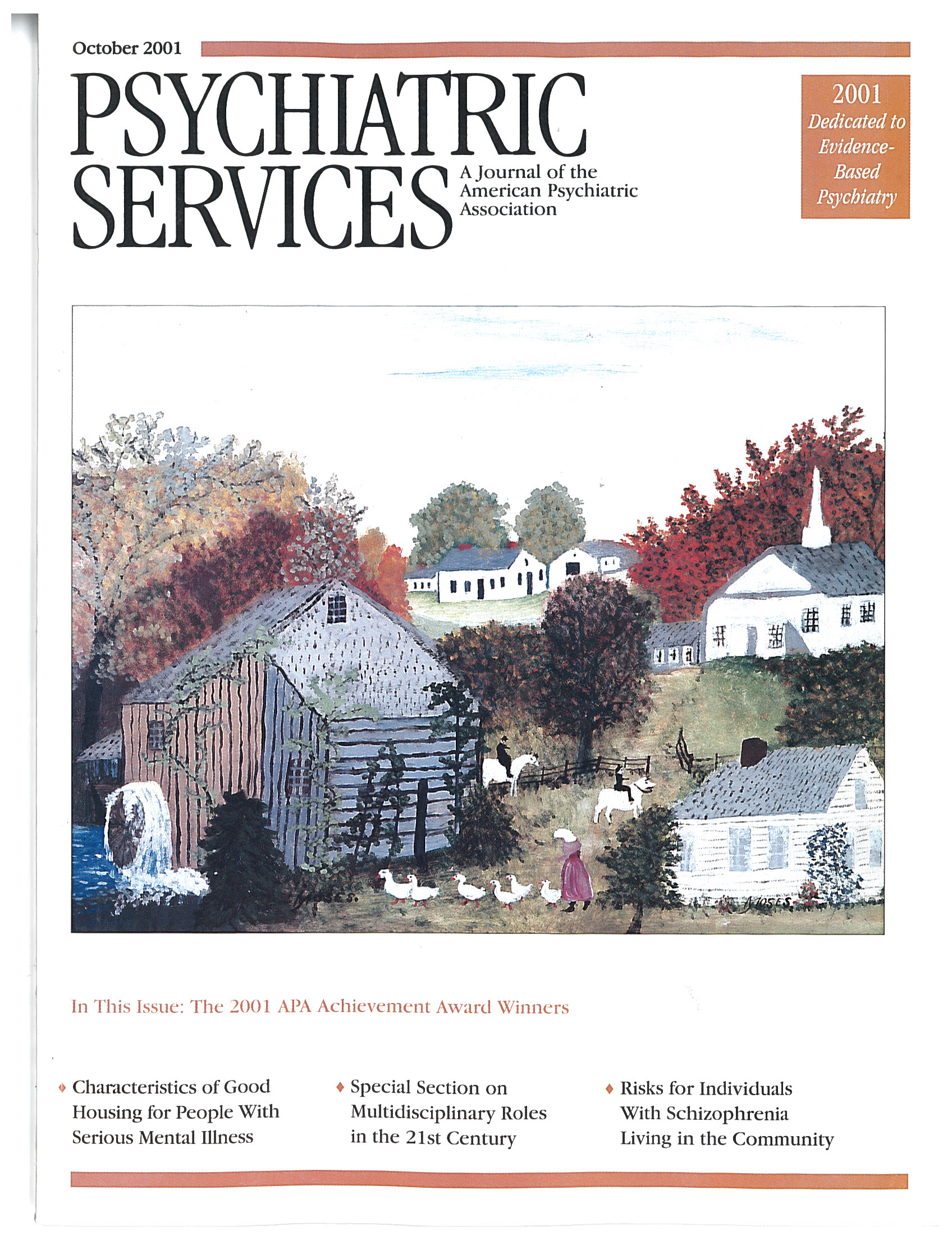Holocaust Survivors' Home
Some 500 psychiatric inpatients in Israel are known to be survivors of the Nazi Holocaust. Many of them have been hospitalized continuously for 20 to 50 years. Most of these patients received diagnoses of chronic schizophrenia, with no special attention given to the historical circumstances related to their psychiatric symptoms and disabilities.
In response to the need for a different approach to this population, a unique home for such Holocaust survivors was opened on February 1, 2000, adjacent to the grounds of the Beer Ya'acov Regional Mental Health Center in central Israel. The entire facility is planned for 100 residents, who are housed in three buildings. Each building is a separate one-story structure with its own small kitchen and communal dining room. Each resident room has its own toilet and shower and houses two patients. Activities at the home include psychodrama, exercise, music therapy, and a weekly cinema club.
Directed by a professional social worker, the home is staffed 24 hours a day by nurses and nurses' aides trained in geriatric and psychiatric nursing. A social worker and an occupational therapist support this staff, and a psychiatrist and an internist on call from the regional center usually visit the home every weekday.
One turning point in defining this program as a "home" rather than an institution came on the occasion of the first major Jewish holiday in our setting, the Jewish festival of Passover, on April 19, 2000. Passover is celebrated with the seder, a ceremonial dinner and collective recitation of the ancient Israelites' enslavement in Egypt and the subsequent exodus. The seder meal is traditionally a family experience, often charged with high emotions. Family members meet with other relatives whom they may not have seen for some time, and they often recall deceased relatives.
Many of the survivors in our home have no relatives, and they all have a personal history profoundly disturbed by inhumane and systematic physical and psychological torture. Although staff members were apprehensive about having a seder, most of the patients participated in the communal singing and religious ceremonies and partook in the festive meal.
The case of Ms. A is an illustrative example. Born in 1927 in Hungary, Ms. A was raised by a foster family in Budapest. She was forced for economic reasons to leave school and begin working as a maid at the age of 14. Ms. A was 17 when the Nazis began rounding up Jews in the Budapest ghetto in 1944, and she was able to survive as a prostitute. The rest of her story is not clear. It is known that she immigrated to Palestine and was a soldier in Israel's War of Independence. After the war she never married or adjusted to normal life.
Before she was released to the Holocaust Survivors' Home, she had been hospitalized for 40 years in a crowded, privately owned institution. Usually introverted, she was diagnosed as having residual chronic schizophrenia. Ms. A blossomed at the seder. She read the story of the Exodus, she sang, and she seemed to express emotions long dormant, remembering things "as they were."
We believe the Holocaust Survivor's Home could be a useful model for patients who are displaced survivors of catastrophic events, have severe mental illness, and require continuous care.
Mr. Greenwald, M.S.W., is professional director and Mr. Shvindelman is head nurse of the home. For more information, write the authors at Holocaust Survivors' Home, P.O.B. 1, Beer Ya'acov, 70350, Israel (e-mail, [email protected]).



